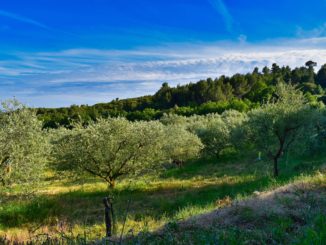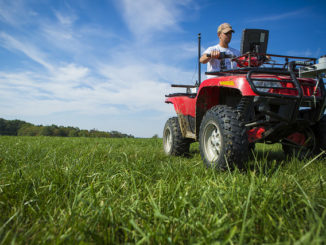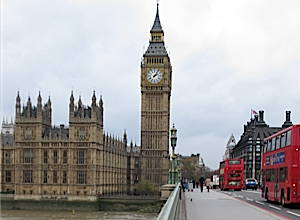“Public money for farmers not agro-business!”
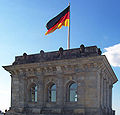
“Meine Landwirtschaft” (My agriculture) a broad campaign-alliance of German farmers’ organisations, environment, consumers and development NGOs on the EU agricultural policy staged a demonstration in front of the EU Commissions embassy in Berlin yesterday as the head of cabinet of Commissioner Dacian Ciolos, Georg Häusler, presented the Commission proposals. Agricultural minister Ilse Aigner was depicted as shuffling big money to big agri-business while a small farmer was left with near to nothing. “We want a truly green CAP reform that benefits small and family farmers in the first place,” said spokesperson Benedikt Haerlin, “and we need a globally responsible reform that stops the devastating impacts of the CAP on global hunger and development.”
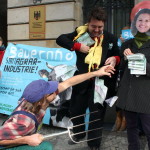
While highly critical of the Commission proposal, which “includes important elements of change in the overall structure but does not deliver at the level of concrete measures and goals”, the alliance’s main target is the national government, which defames the reform as “green tape” and high highly bureaucratic and bluntly rejects any capping of mega-subsidies for agro-business. “Agricultural policy is not social policy”, Dr. Dietrich Guth of the ministry replied to Häusler, “the hectare delivers public goods, not the farmer”. Subsidizing labour and people instead of areas would be a “reversal of the paradigm shift towards competitiveness and innovation”, he claimed. Big farmers all had plans to split their businesses in case of capping in their lawyers drawers, he said, “you will not get a single Euro from them”. Guth also called the Commissions proposal for 7 % mandatory biodiversity and environmental friendly areas a “set aside programme in times of hunger and increasing demand for food and renewable energy.”
While the main farmers Union was singing to the same tune, small farmers organisations as well as environment and development organisations felt somewhat uneasy defending the concept of the Commission though disagreeing with its weak and unambitious content. “70% of a single crop per estate is about the maximum level of maize monocultures in intensive farming areas, which now drives people up against agro-deserts,” a representative of Friends of the Earth commented on the , “and the Commission now proposes this as a greening measure!”. Omission of any mandatory crop rotation with leguminous plants reducing climate gas emissions and the EU 35 million hectare trade deficit, due to feed imports as well as maintaining export subsidies was also strongly criticised. Subsidizing the fact that 5% of all farmers went out of business only last year “of course is social policy, yet with a different goal,” said family farm organisation AbL president Graefe zu Baringdorf.
Häusler was anxious to defend his Commissioner’s will to substantially green the CAP “the red line is when this ends with greenwashing.” The Commission actually proposed a massive reduction of bureaucracy, e.g. a flat rate for small farmers up to 1000 € (22% of farms in Germany). However, in order to achieve a greener and more transparent CAP, “everybody has to contribute – even the bureaucracy.”


